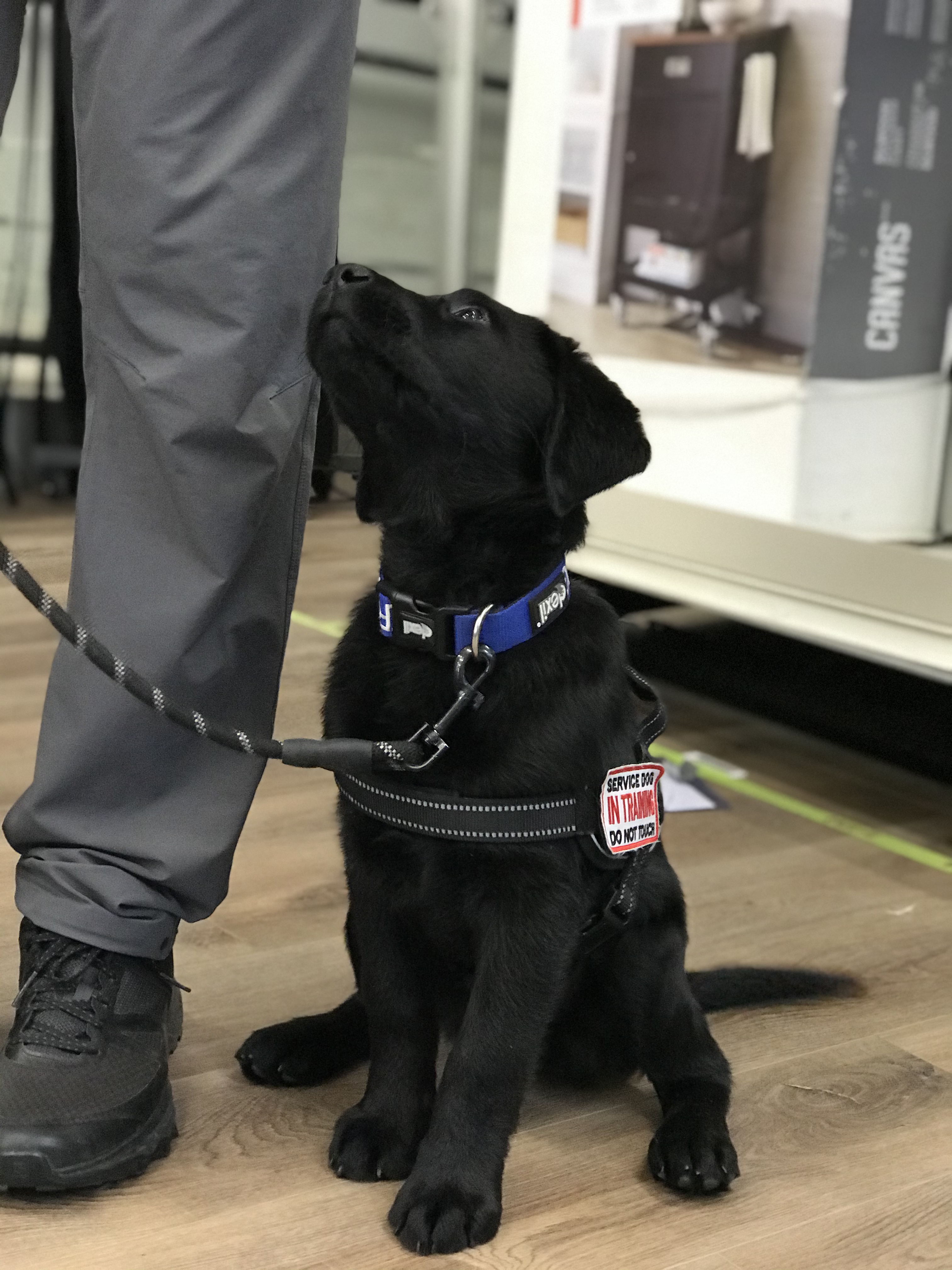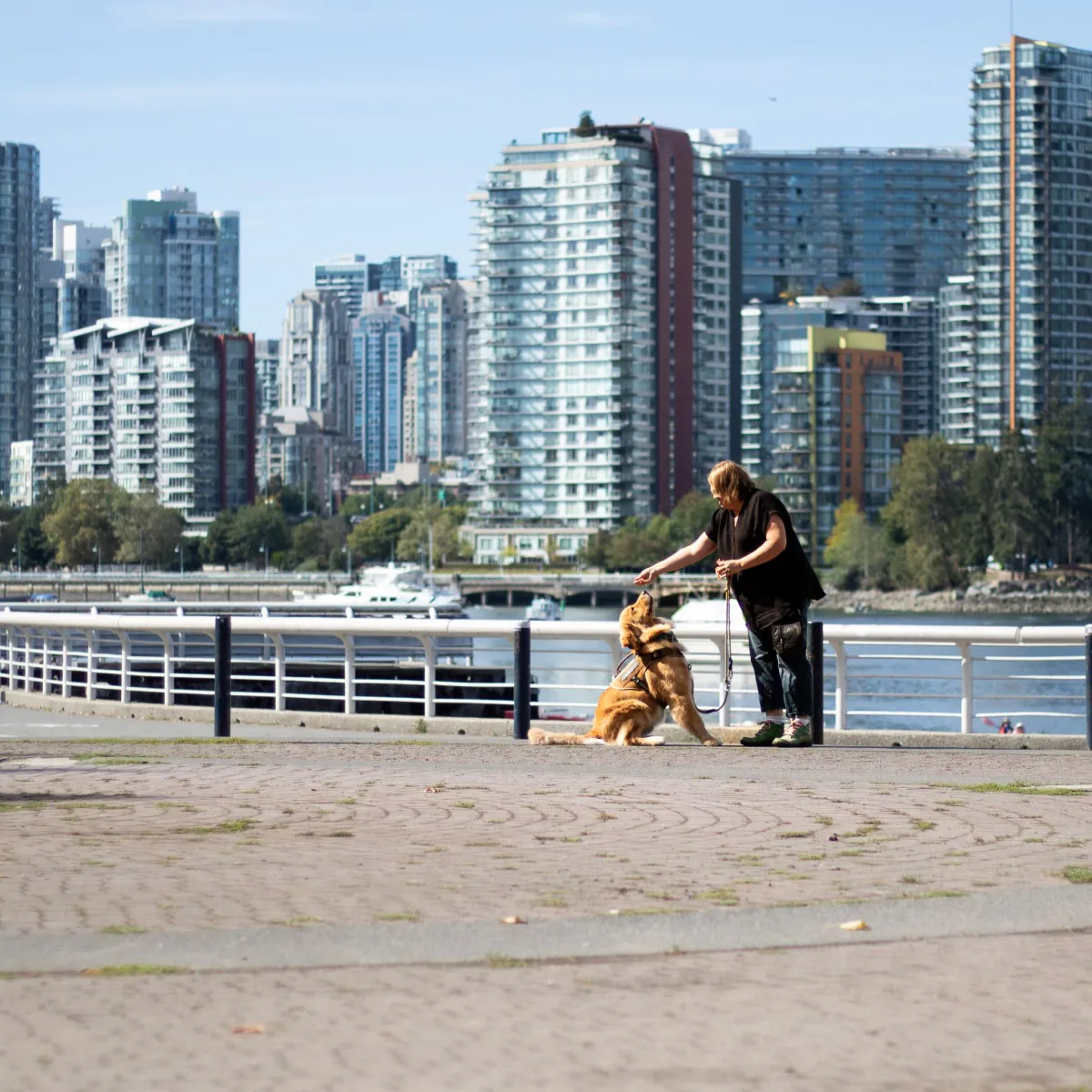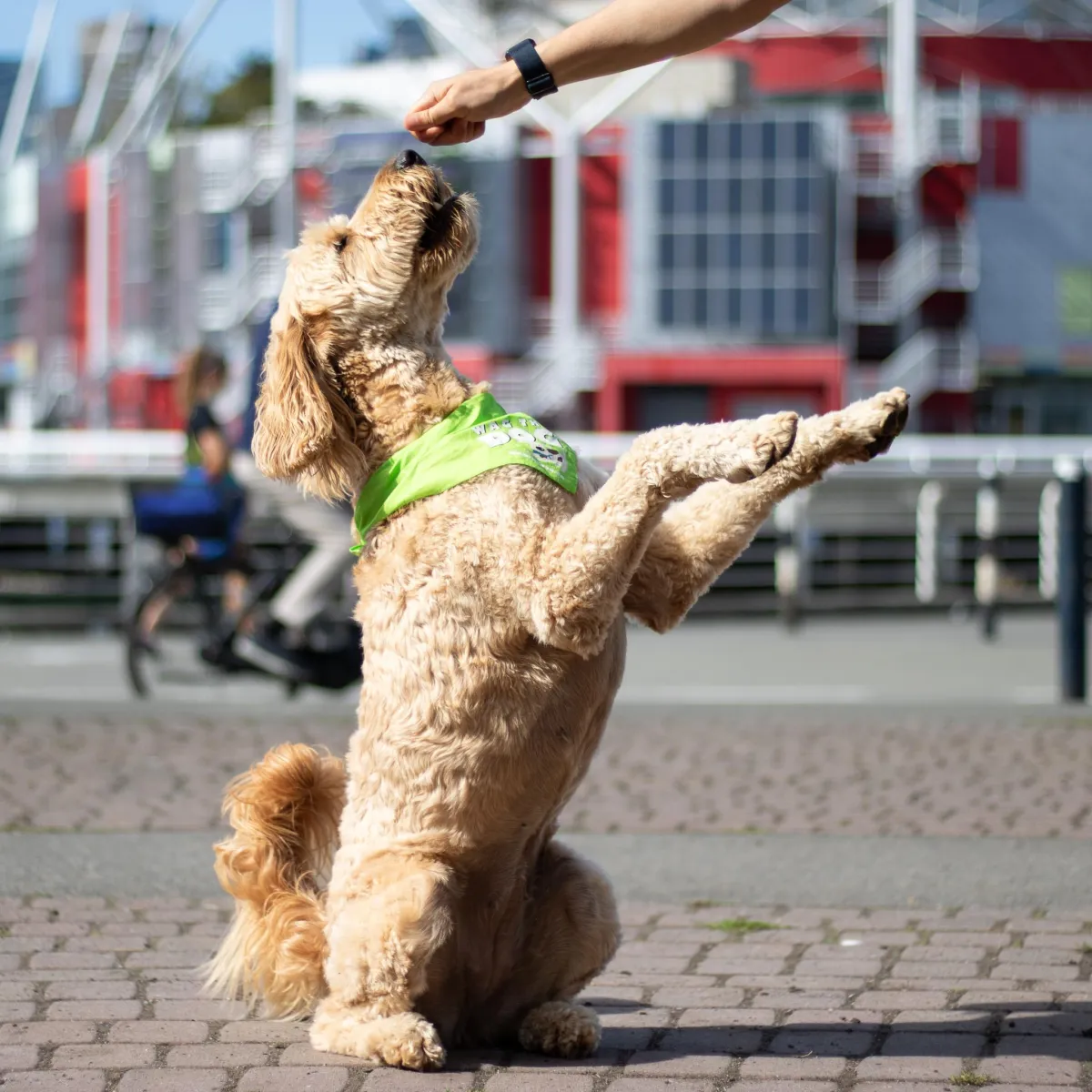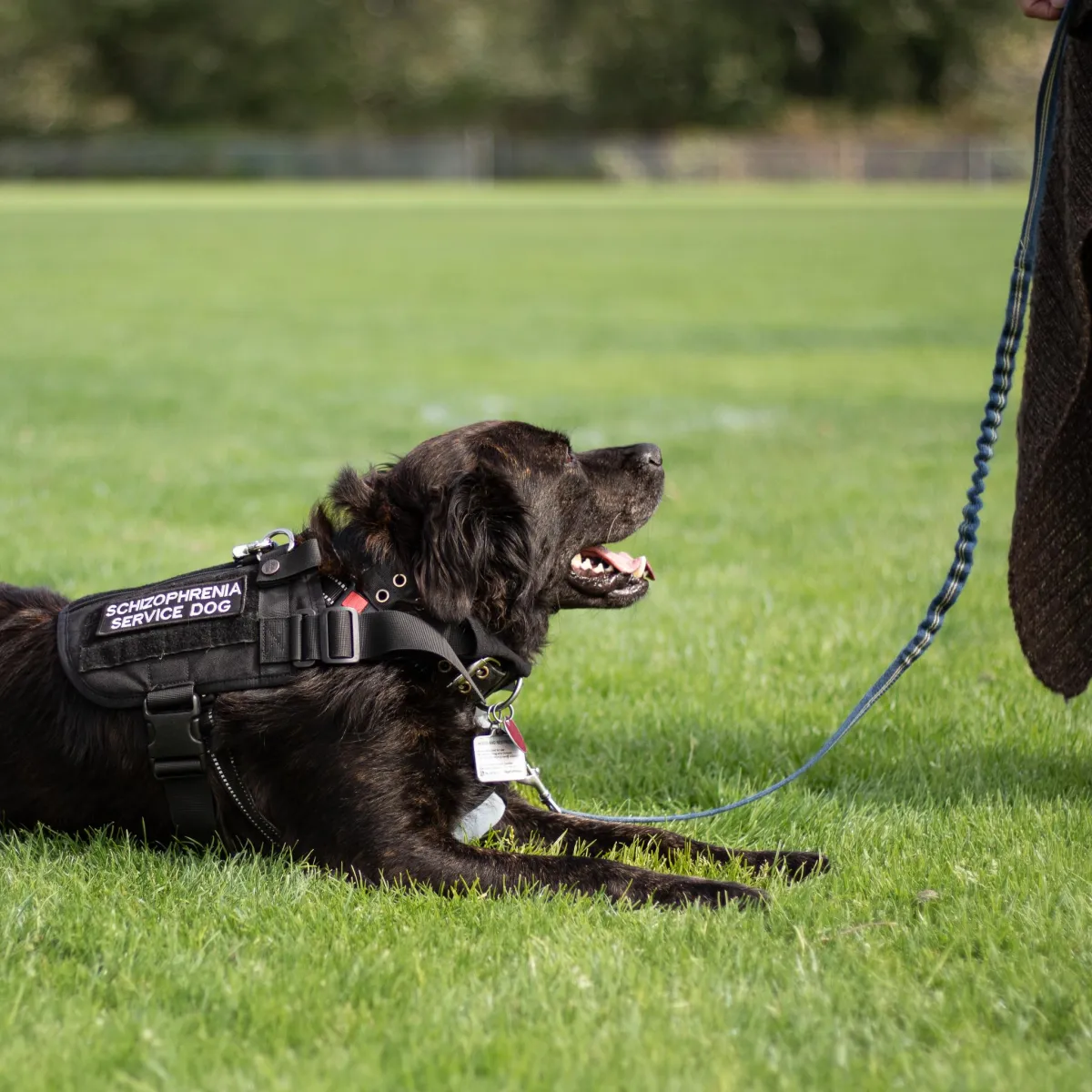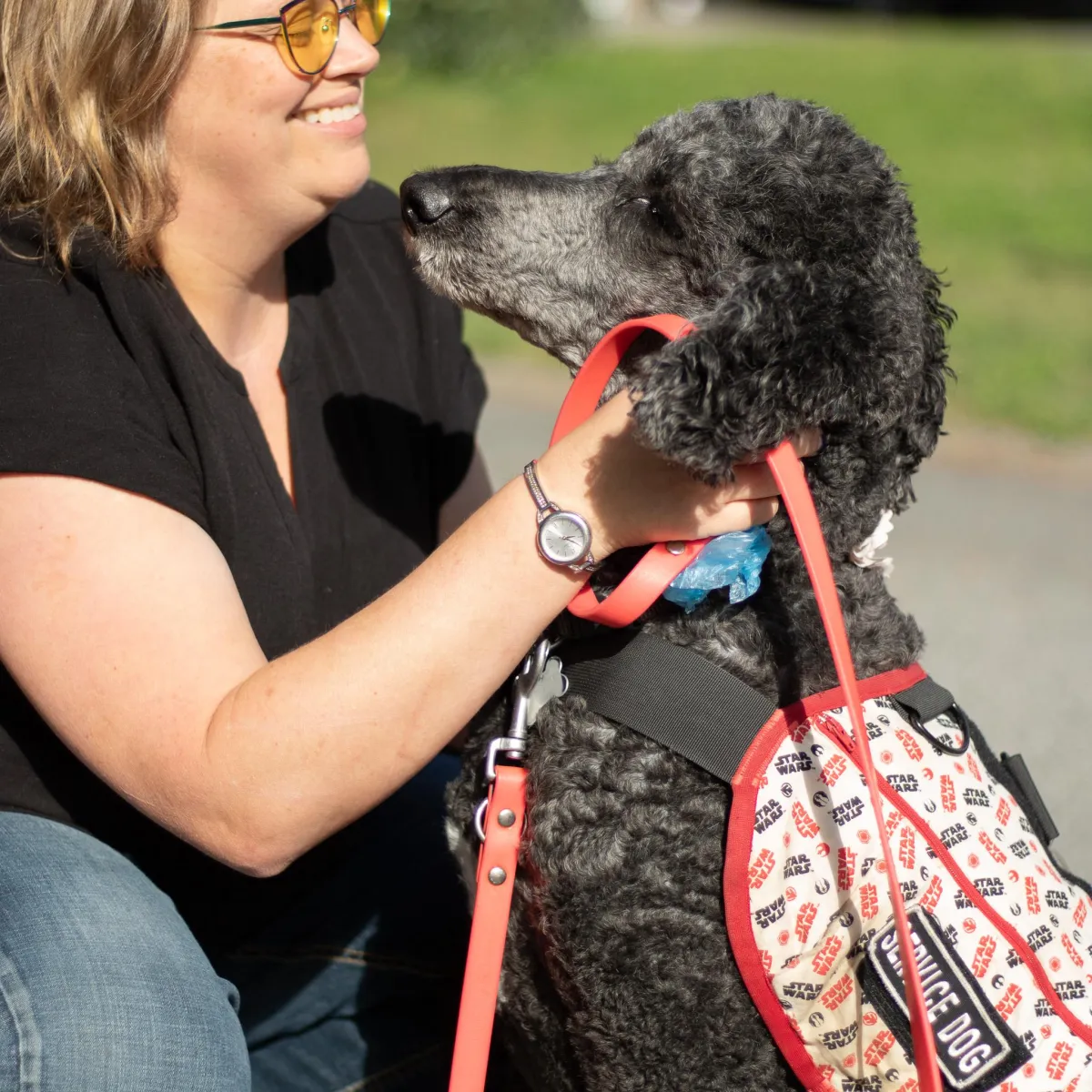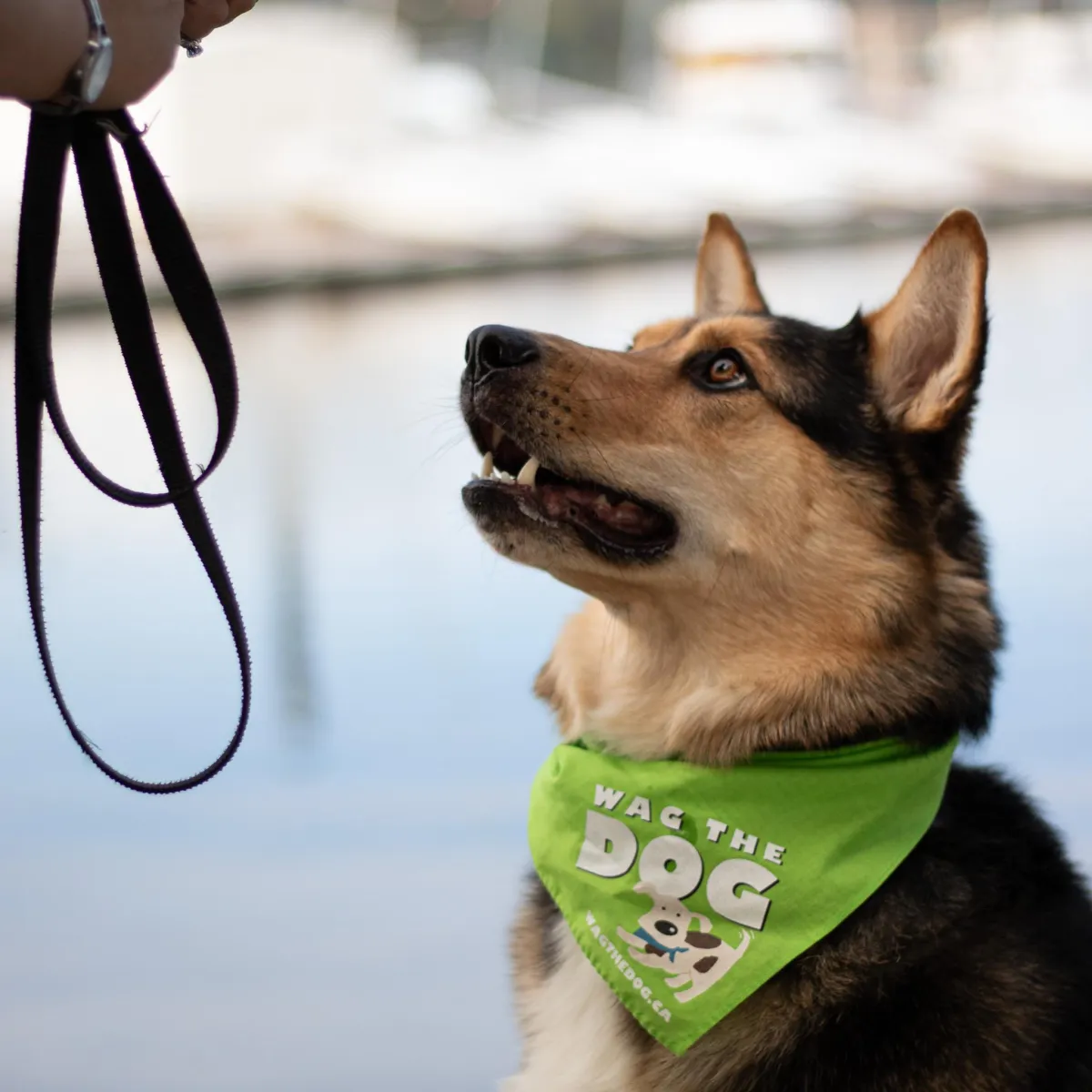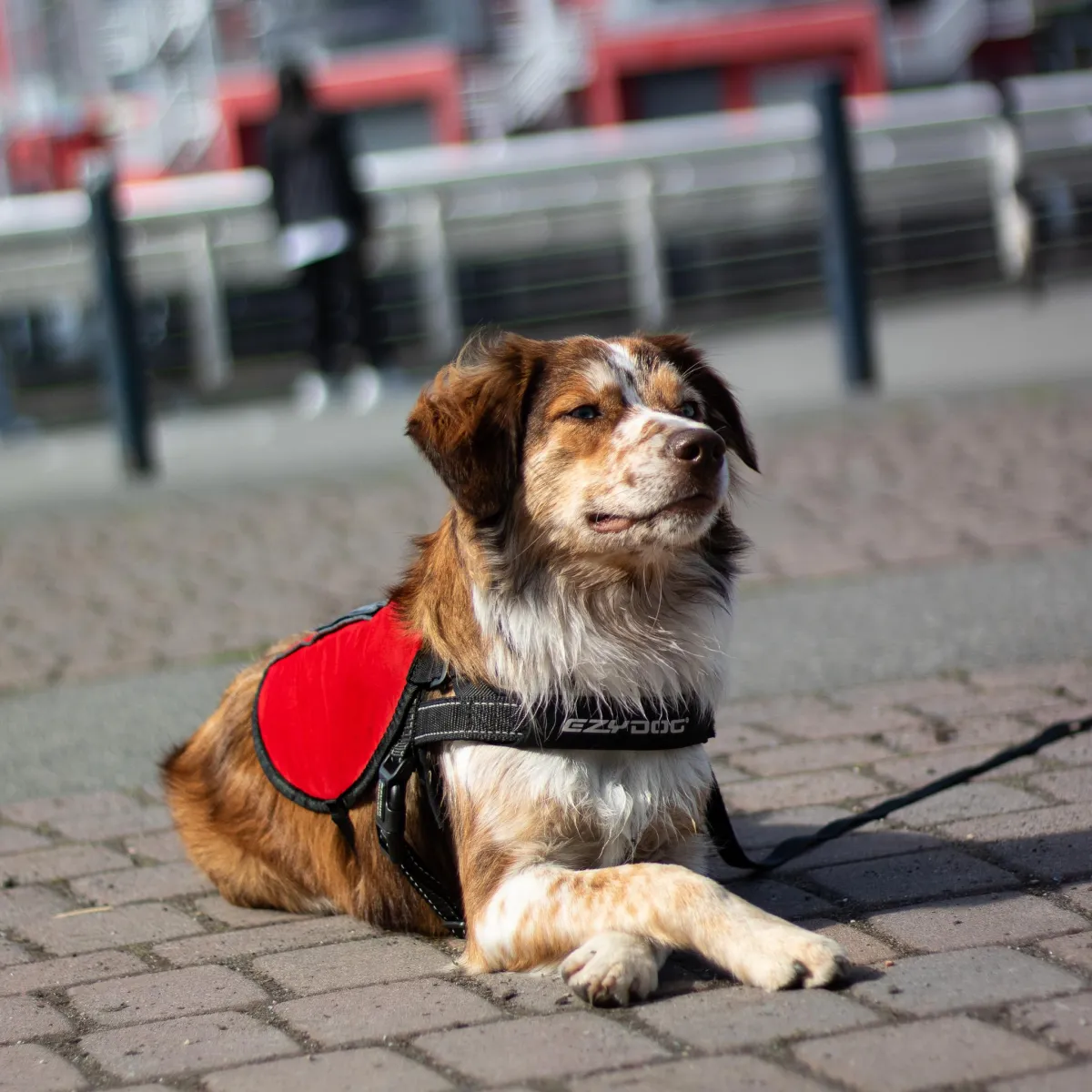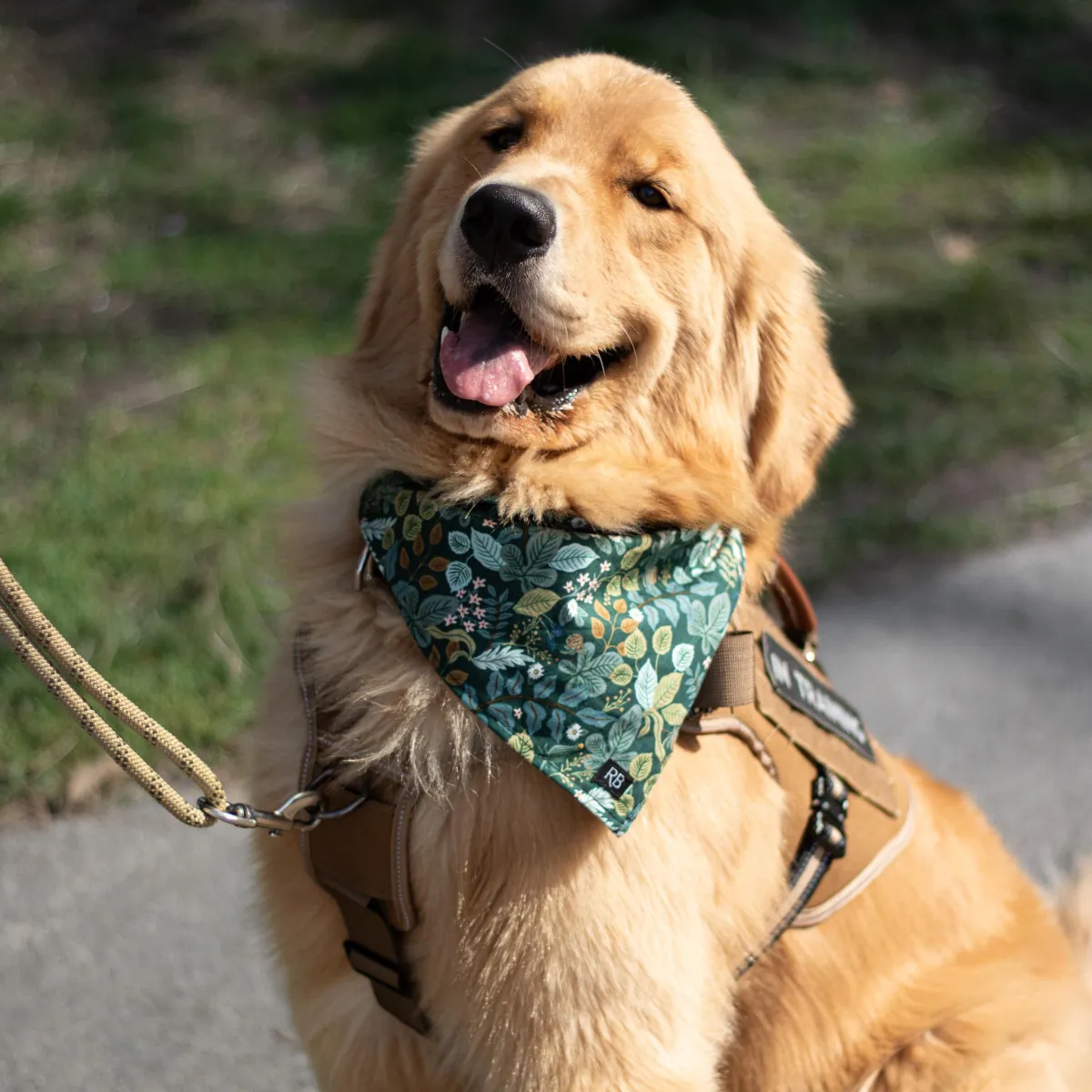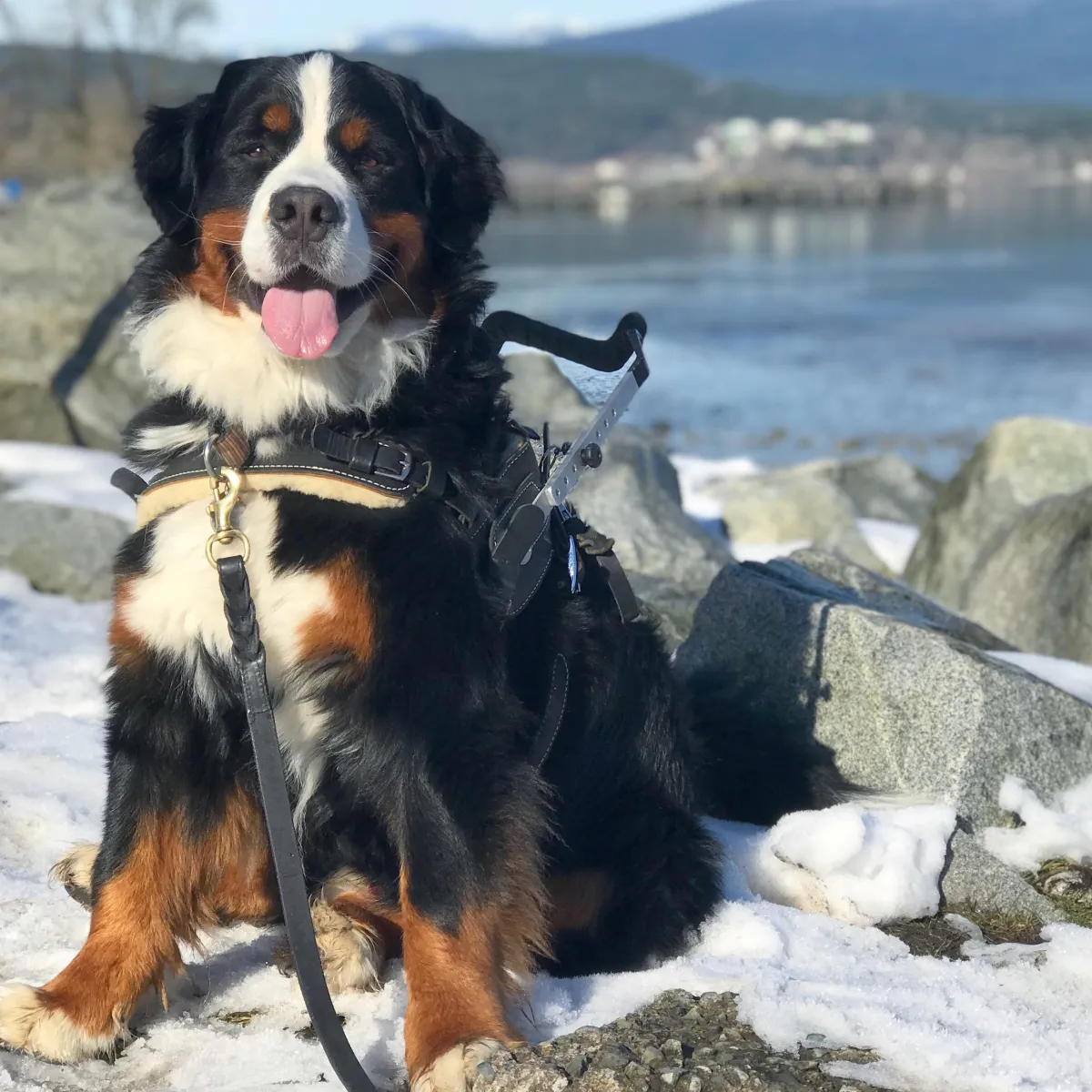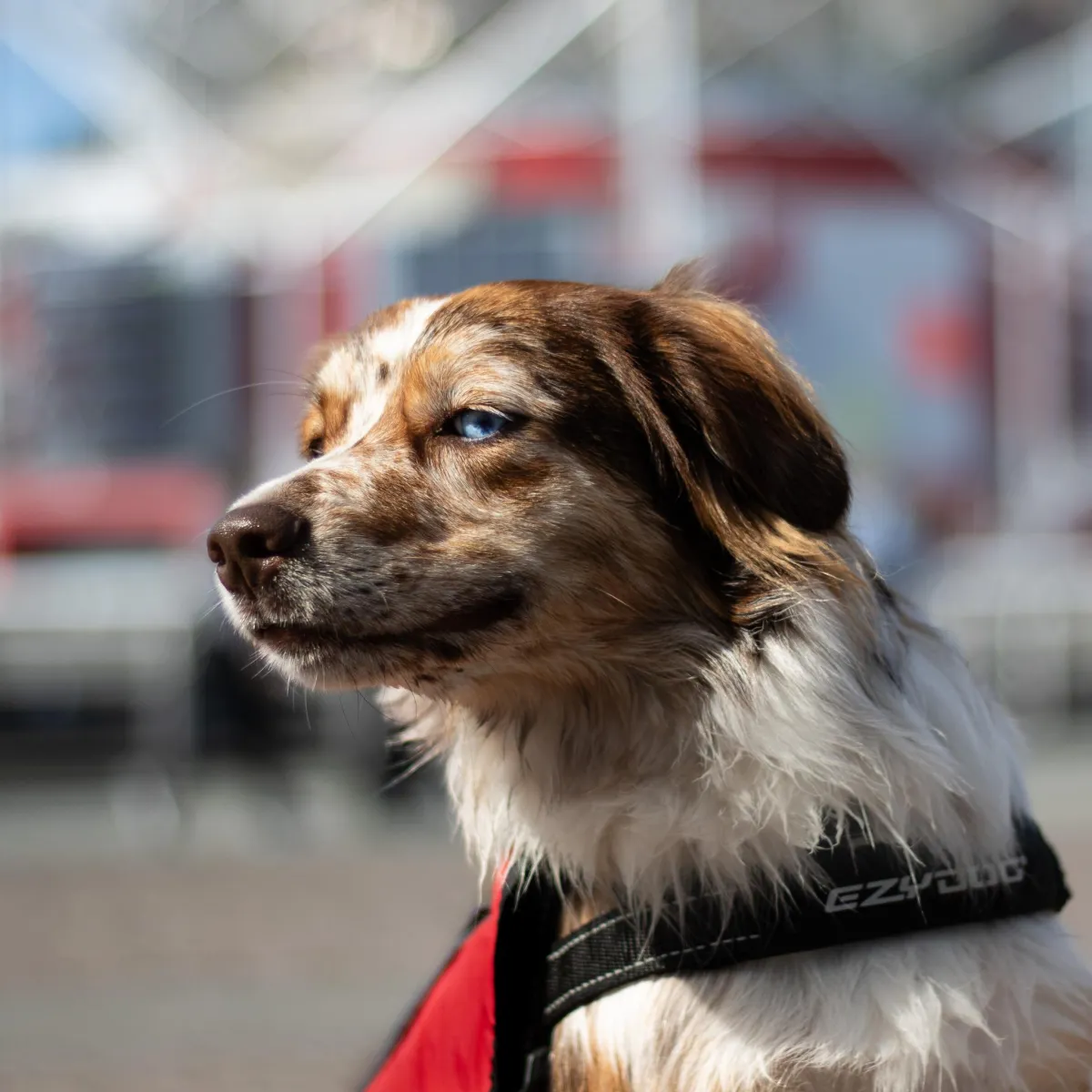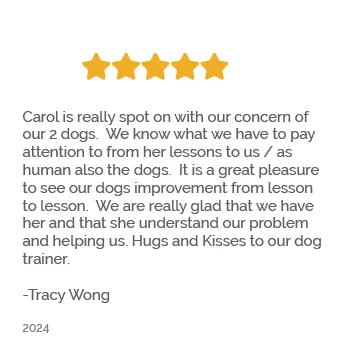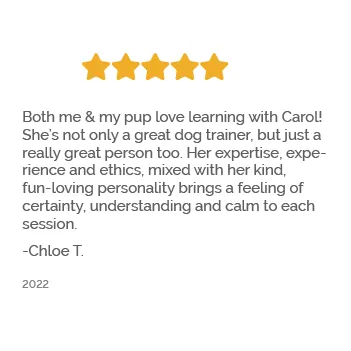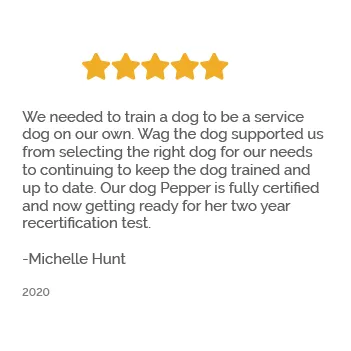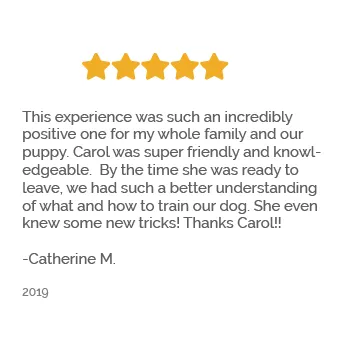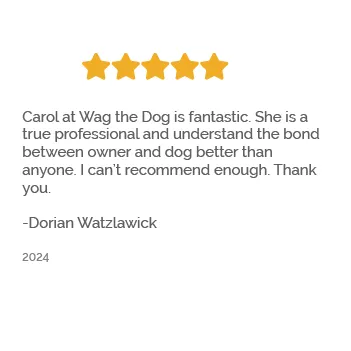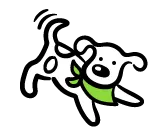
Welcome to Canine Education
Wag The Dog delivers educated dog training and service dog training in the Greater Vancouver Area.
We train at the forefront of canine cognitive science. We know that our dogs are capable of understanding so much more than people think.
Need a paw-sitive change in your dog's behavior? Whether you're a new dog parent or aiming to train a service dog, we've got your tail covered!
Why fetch our help...
Expert trainers you can trust.
Ethical, experienced, and educated.
Say goodbye to ruff times! Let's create the best bond with your furry friend.
Our highly-educated trainers hold science diplomas in Psychology, Animal Health, and Assistance Dog Education. We have a combined 30 years of hands-on professional dog training experience.
Click below to discover what
each program presents!
Puppy Prodigy
Start your puppy off on the best paw!
Ages 2-4 months.
Brain-building exercises
Social development
Develop a secure attachment
Prevent behavior problems
Learn More
Bonds and Behaviour
Harnessing the power of the dog-human bond.
Age: 5 Months or older
Improved focus on you
Improved recall
Better manners on and off leash
Service Dog Programs
Training a service dog is NOT the same as high-level obedience. It requires:
Intelligent disobedience
Independent decision making
Teamwork mindset

Puppy Prodigy
Start your puppy off on the best paw! Ages 2-4 months.
Brain-building exercises
Social development
Develop a secure attachment
Prevent behavior problems
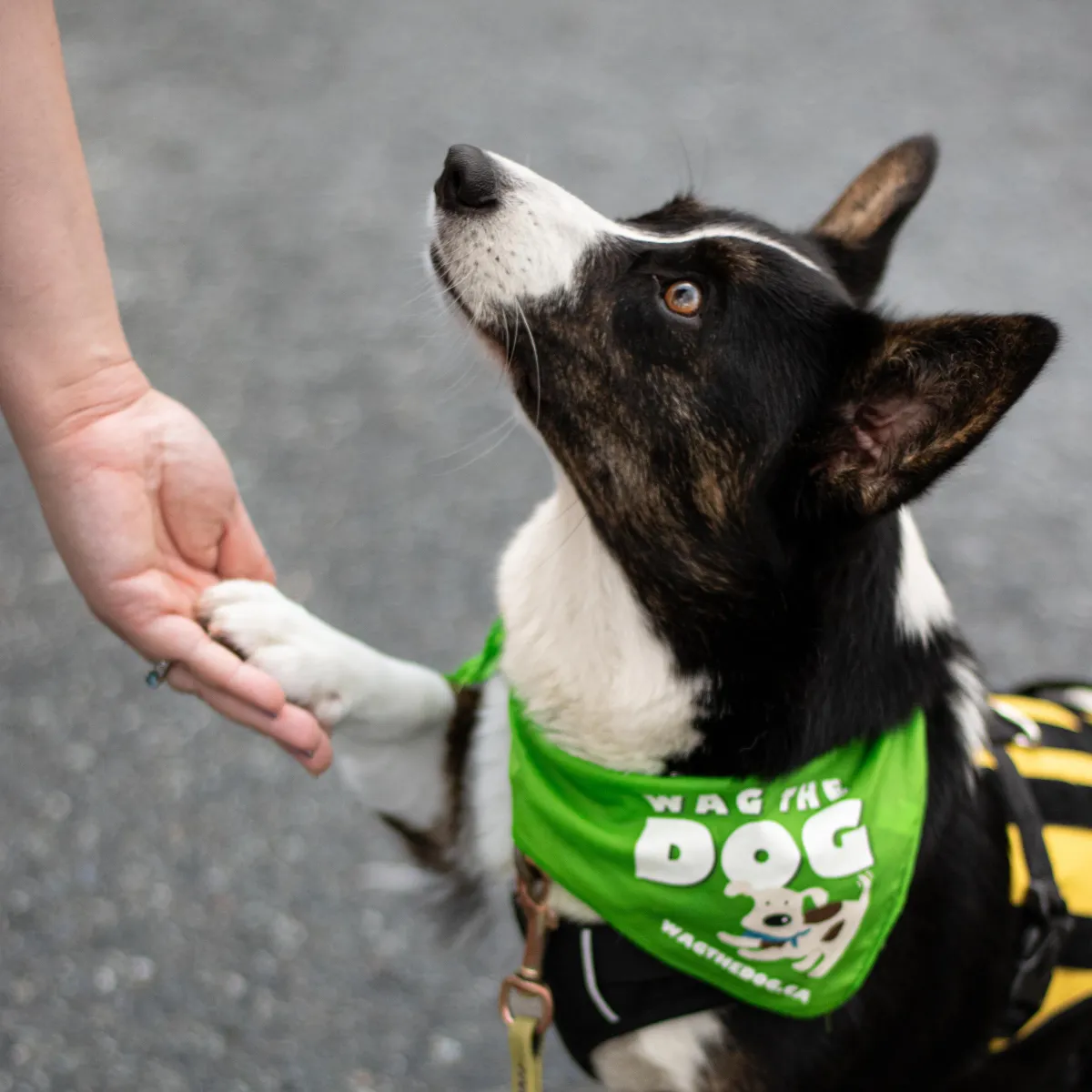
Bonds and Behaviour
Harnessing the power of the dog-human bond.
Age: 5 months or older
Improved focus on you
Improved recall
Better manners on and off leash
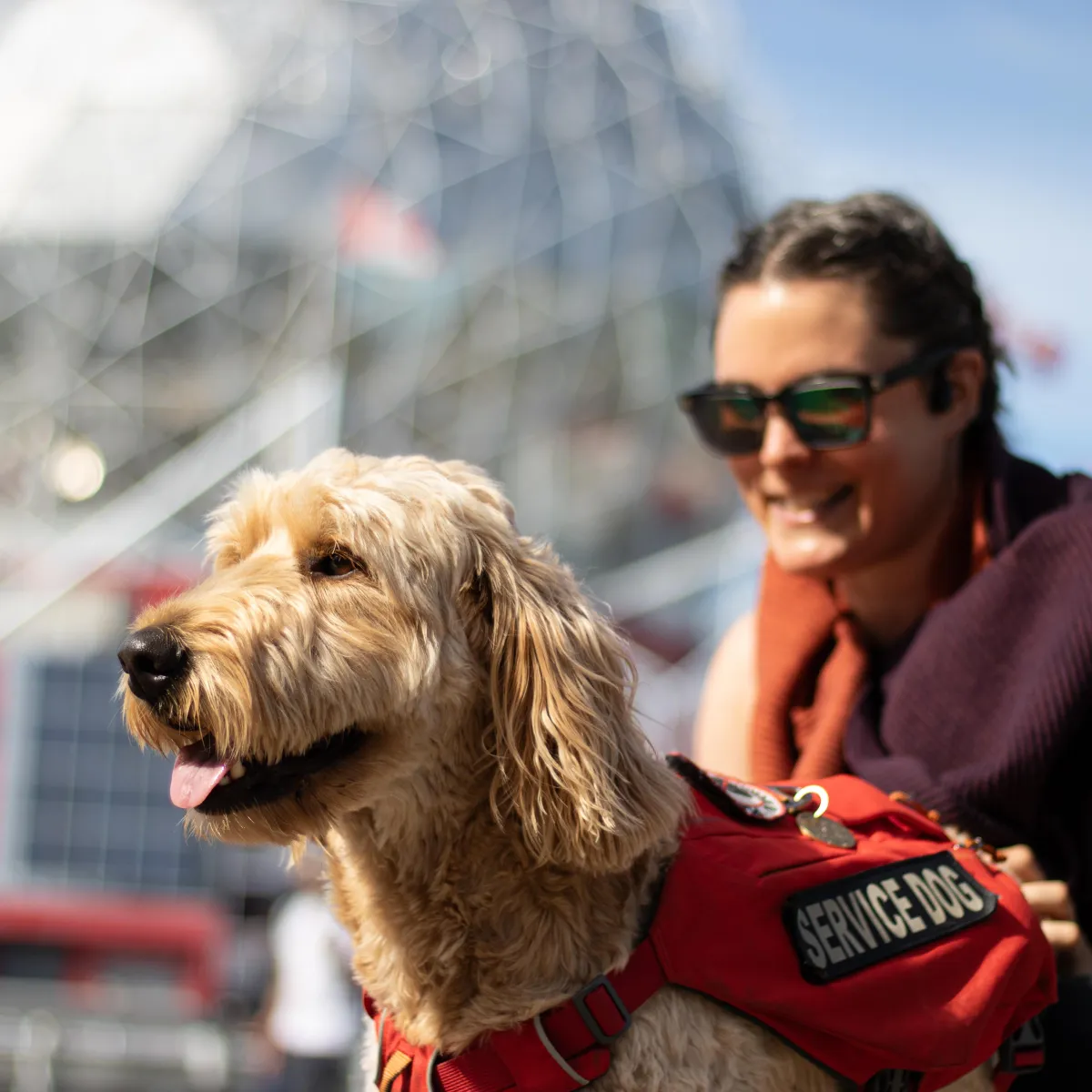
Assistance Dog Program
Training a service dog is NOT the same as high-level obedience. It requires:
Intelligent disobedience
Independent decision making
Teamwork mindset
Service Dog Certifications - Level I
Service Dog Certifications - Level II

We work on land which was taken from the nations who had lived here for thousands of years. They are still here and they are still waiting patiently for us to stop being jerks about it.
© 2024 Copyright Wag The Dog Training
All Rights Reserved

